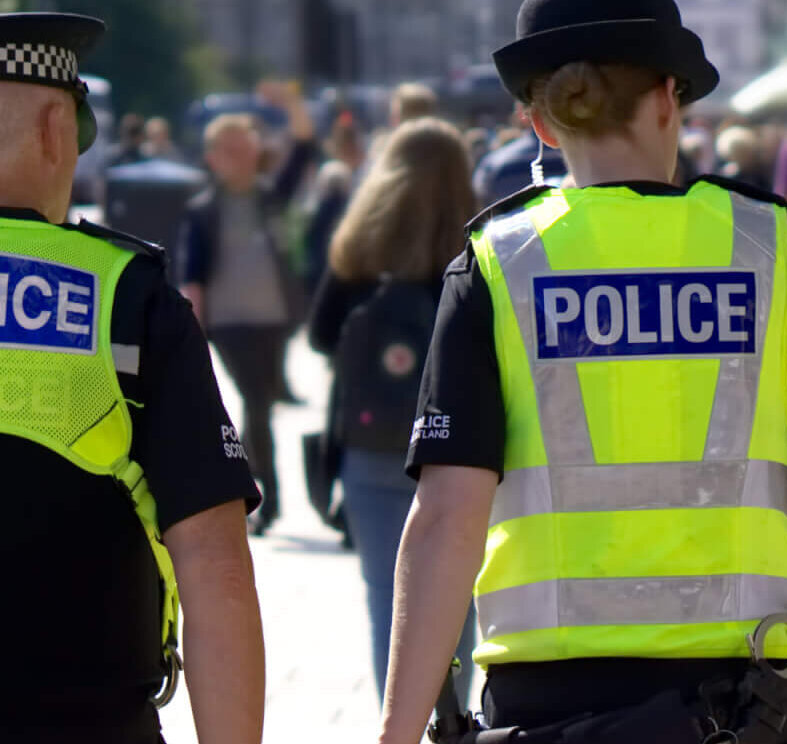What is a Civil Action Against the Police?
A civil claim against the Police is a legal action brought by an individual who has been mistreated unlawfully or unfairly by police officers.
These claims aren’t about punishing officers. Where necessary, that’s a matter for the police complaints system or criminal courts. Civil claims are about getting justice for what happened to you. You want them to acknowledge that they’ve done you wrong, to make them accountable for their actions and, where appropriate, to pay you compensation.
You May Have a Claim if You’ve Been:
- Arrested without good reason
- Locked up unlawfully
- Tasered or handcuffed without justification
- Subjected to unnecessary force
- Treated unfairly because of your race, gender, or background
- Falsely accused and dragged through court
Let’s look at these in more detail.
Unlawful Arrest
You can only be lawfully arrested by a police officer if they have a warrant for your address or if an officer has reasonable grounds to suspect:
- You’ve committed a crime,
- You are about to commit a criminal offence,
.. and therefore (they reasonably believe) arrest is necessary.
If the arresting officer:
- Didn’t explain why you were being arrested
- Had no factual basis for suspecting you
- Used arrest when there were better, less extreme options available to them,
… then your arrest may have been unlawful. If so, you may have a claim for unlawful arrest.
False Imprisonment
False imprisonment occurs when you are detained without any lawful justification for the detention.
For example, you might have been:
- Held in custody for longer than necessary
- Detained after a wrongful arrest
- Kept in a police van or cell without explanation
It doesn’t need to involve a prison for the detention to be considered false imprisonment. Even five minutes of unlawful detention can amount to false imprisonment. An illegal stop and search is false imprisonment. However, the restraint imposed upon you must be total.
Malicious Prosecution
Malicious prosecution occurs when you’ve been prosecuted without reasonable grounds, with malice or, in other words, with ill intent.
To bring this type of claim, you need to show:
- The prosecution was brought without reasonable grounds for doing so
- The case ended in your favour, i.e. dropped charges or acquitted in court.
- The police acted maliciously, not just mistakenly.
Malicious prosecution is a tough claim to win, as you must prove that the olice acted maliciously; in other words, they intended to cause you harm by misusing the court process. That they made a mistake is not enough.
However, with sufficient evidence and a strong case on its merits, malicious prosecution claims can be successful.
Misuse of Tasers or Handcuffs
Tasers and handcuffs aren’t meant to be used as punishment. They are only to be used by the police when necessary, i.e., when faced with a serious threat of violence, to achieve a lawful purpose, and using only such force as is proportionate.
You may have a claim if you were:
- Tasered when posing no threat
- Left injured or traumatised after a Taser incident
- Handcuffed without reason
- Kept in cuffs long after any risk had passed
Any misuse of force is a breach of your rights. If you have suffered injury as a result of being tasered or from illegally fitted handcuffs, then you could also bring a personal injury claim against the police.
Excessive Use of Force
If you’ve been:
- Pushed to the ground
- Punched, kicked or otherwise assaulted
- Injured during an arrest or search
… and the level of force was excessive contact us on 029 2199 1927.
The police are only allowed to use “reasonable force”. When they go beyond that, it becomes unlawful — and it may form the basis for a personal injury claim.
Discrimination by the Police
You shouldn’t be treated differently because of your:
- Race
- Religion
- Disability
- Gender
- Sexual orientation
- Age
If you believe the Police have discriminated against you because of a protected characteristic, the Police may have breached the Equality Act 2010, and you may have the right to claim compensation.
Can I bring a Civil Claim for Compensation against the Police using a No Win No Fee Arrangement?
When you first contact Mooneerams about making a civil claim against the Police, we will, with your permission, pass on your contact details to a firm of solicitors experienced in handling civil actions against the Police. They will then advise on the strength of your case and whether it has reasonable prospects of success. If they think your prospects are strong, and you’d like them to take your case on, they may be able to handle your claim on a No Win No Fee basis, backed by After the Event (ATE) insurance.
The firm of solicitors we work in conjunction with is the only law practice in England and Wales to have devolved power to grant ATE in civil actions against the Police. They will explain more about how this form of legal funding works when you speak to them about making a claim for compensation against the Police.
Is There a Time Limit?
Yes. In most cases:
- You have 12 months from the date of the act complained of to bring a claim for breaches of your human rights
- You have 6 years to bring a claim for false imprisonment or unlawful arrest. However, if your claim also includes a claim for personal injury, the time limit is 3 years from the date of the matter for which you are claiming.
- You have 3 years to bring a claim for assault by the Police.
The sooner you act, the better, as the circumstances of the incident will still be fresh in your mind and those of any witnesses.
Contact Mooneerams Today
Call us on 029 2199 1927 or send us a message through our website here
For further reference, see:






















